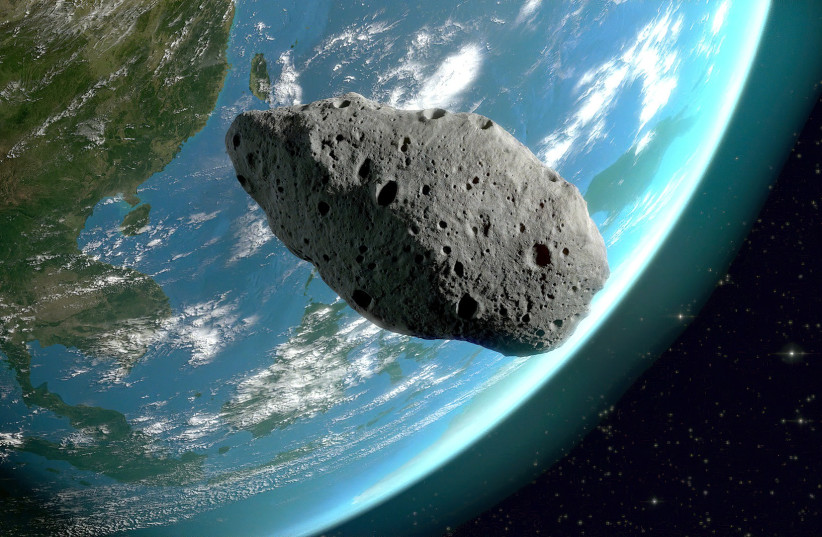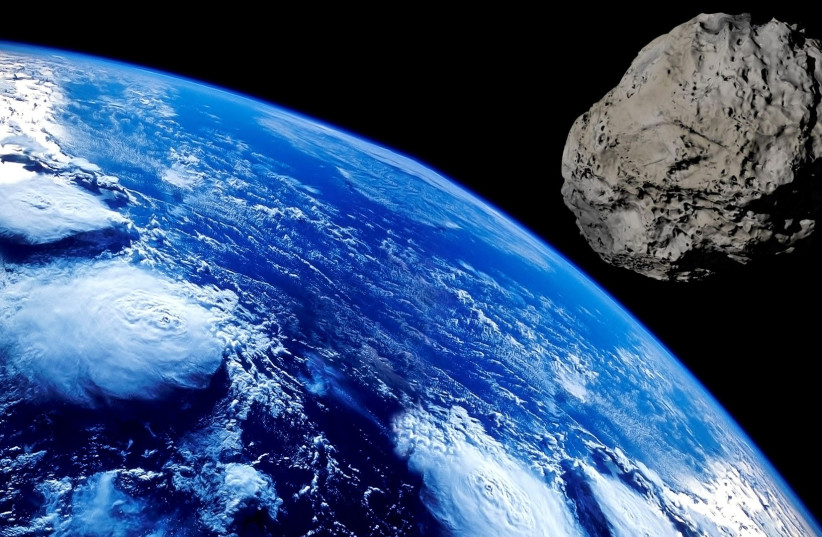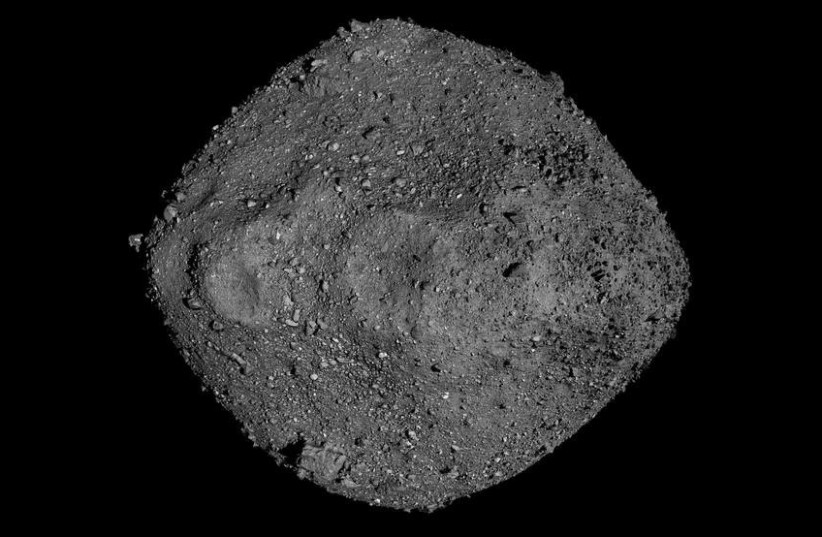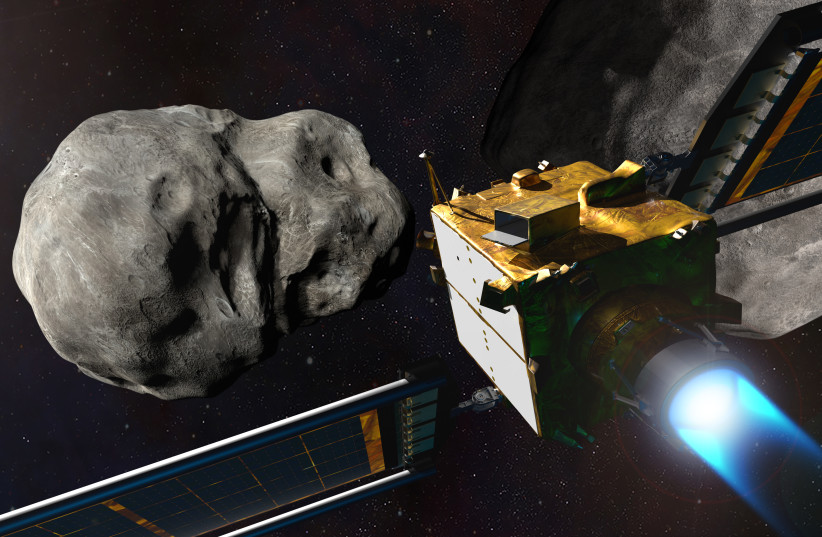Three asteroids, one of which is as large as Russian oligarch Roman Abramovich's superyacht, are set to fly past Earth this Monday, September 5, according to NASA's asteroid tracker.
<br>Which asteroid is coming towards Earth?
The three asteroids in question have been designated 2022 QJ7, 2022 QU5 and 2022 RW, according to the Center for Near-Earth Object Studies (CNEOS) at NASA's Jet Propulsion Laboratory (JPL). The first two asteroids are on the smaller side, with estimated sizes ranging from 20 meters at minimum to 52 meters at maximum. The last asteroid, however, is considerably larger, with a maximum estimated size of 140 meters.
<br>How big is the asteroid coming towards Earth in 2022?
Asteroid 2022 RW is considerably larger than the other two and has an estimated width ranging from 63 meters to 140 meters.
To put that in perspective, at minimum, asteroid 2022 RW is around half the size of the Great Pyramid of Giza in Egypt.
But at maximum, this asteroid is much larger, comparable in size to the Solaris, the superyacht owned by Russian-Jewish oligarch Roman Abramovich.

Asteroid 2022 RW is also quite fast, with NASA reporting its speed clocking in at around 11.20 kilometers per second, or 40,320 kilometers per hour. That means it's heading towards Earth's orbit at a speed close to 33 times the speed of sound.
In addition, an asteroid as large as 2022 RW doesn't always approach the Earth so often. According to NASA CNEOS, asteroid 2022 RW has a rarity of two, meaning an asteroid of this size would only approach the Earth around once a year.
But as stated earlier, the other two asteroids, both of which are set to pass Earth before 2022 RW, aren't that big.
The first one, asteroid 2022 QJ7, has a width ranging from 20 meters to 44 meters, according to NASA.
For context, 44 meters is around two-and-a-half times the length of a bowling lane.
But asteroid 2022 QJ7 is faster, heading towards Earth's orbit at a speed of around 12.02 kilometers per second, or 43,272 kilometers per hour. That's a speed close to 35 times the speed of sound.
The next one, asteroid QU5, is similar in size, with NASA estimating its width between 23 meters and 52 meters. It's also slower, clocking in at 7.11 kilometers per second, or 25,596 kilometers per hour - roughly comparable to 20.7 times the speed of sound.

Will an asteroid hit Earth in 2022?
Neither of these three asteroids is likely to hit the Earth in 2022.
All three asteroids are set to pass by the Earth at a considerable distance. Out of all of them, asteroid 2022 RW is set to fly the closest at a distance of just over 1.1 million kilometers. This is still close on a cosmic scale and is close enough for it to be considered a Near-Earth Object (NEO) or Near-Earth Asteroid (NEA), but it is still far.
For comparison, the Moon orbits the Earth at a distance of around 384,000 kilometers on average, so this asteroid is still farther.
And that's a good thing because while the two smaller asteroids wouldn't cause much damage even if they did hit the Earth, asteroid 2022 RW is another story altogether.
According to research from the Davidson Institute of Science, the educational arm of Israel's Weizmann Institute of Science, an asteroid 140 meters in diameter or more, like the maximum estimated size of asteroid 2022 RW, would release an amount of energy at least a thousand times greater than that released by the first atomic bomb if it impacted Earth.
An even larger asteroid that's over 300 meters wide – like the Apophis asteroid – could destroy an entire continent. An asteroid over a kilometer in width – like asteroid 138971 (2001 CB21), which flew past the Earth in early March 2022 – could trigger a worldwide cataclysm.
Indeed, asteroid 2022 RW is large enough that it could cause a major disaster if it impacted the planet. However, at their sizes, the two smaller asteroids, 2022 QJ7 and 2022 QU5, wouldn't cause much harm. They will likely cause large and loud explosions upon atmospheric entry, but any actual damage would be minimal, at best.
But will an asteroid ever impact the Earth in 2022? The answer is certainly yes. Or rather, yes, it already happened.

In mid-March 2022, the small asteroid 2022 EB5, which was around half the size of a giraffe, was actually able to hit the Earth - though it caused no damage.
<br>When is the next asteroid predicted to hit the Earth?
Not for a long time, at the very least. NASA has already calculated that the Earth is at no risk of any catastrophic asteroid impacts for the next century.

What is the next asteroid to hit Earth?
We don't know for sure, but there are some candidates.
Currently, one asteroid recognized by NASA as being one of the most dangerous asteroids is the 500-meter-wide asteroid Bennu. If this massive asteroid ever impacts the Earth, the result would likely be catastrophic - but as far as NASA is aware, this won't be for a long time, if ever.

Do we have any way to stop an asteroid from hitting the Earth?
Not yet, but scientists working on it.
The field of planetary defense is specifically organized to do things like that, and scientists at NASA and across the world are hard at work trying to keep the Earth safe.
Currently, the most promising of these efforts is NASA's Double Asteroid Redirection Test (DART) mission, which will see a small specially-designed spacecraft slam into an asteroid to see if it can possibly alter its orbit ever so slightly. But time will tell if this will prove effective.
The DART Mission is set to reach its target, the asteroid Dimorphous, on September 26.
